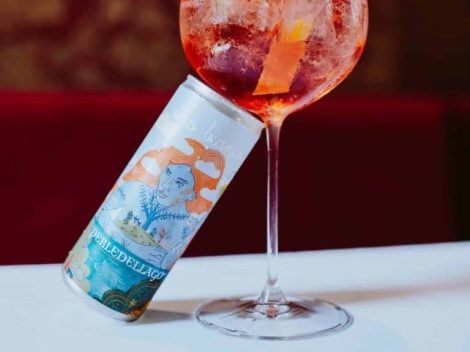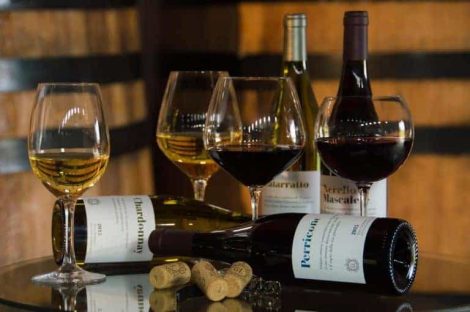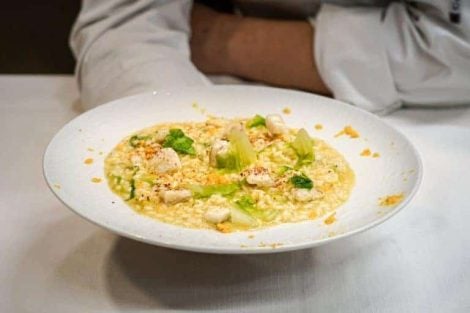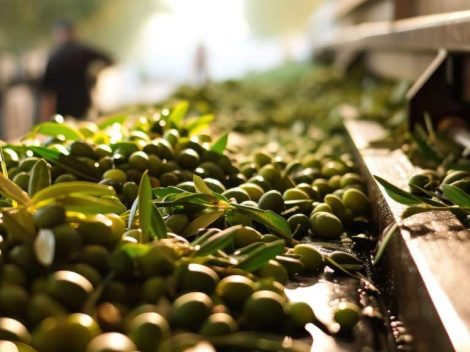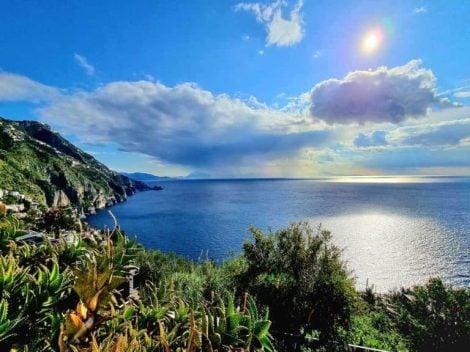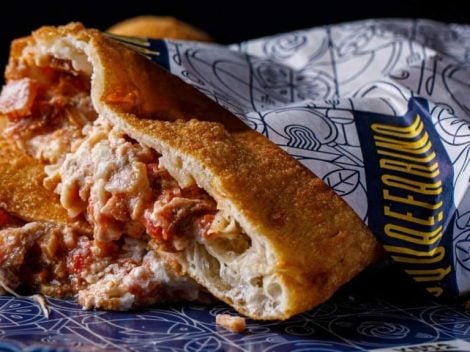The uniqueness of the Brda area, the Slovenian Collio, can be discovered by climbing to the viewpoint at the top of Silvio Jermann's vineyard in Višnjevik. The stratification of the soil, which is very loose, is an open-air geology book. Here they call this friable, soft earth “opoka”, “ponca” in Friulian, marls and sandstones that overlap and mix (flysch, in geology). The hills surrounding us are the kingdom of the Rebula, the yellow Ribolla, whose roots can creep up metres and metres deep, allowing the plant to withstand the dry season and then transmit its typical mineral and salty notes to the wine.
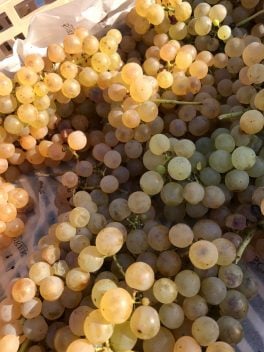
The event dedicated to Ribolla Gialla
Silvio Jermann, a name that needs no introduction and that is investing in new plantings in Slovenian territory, is one of the symbols of this cross-border area that came together in the name of a grape variety, the Ribolla Gialla, for the sixth time since 2017 at the Brda Home of Rebula. The setting was once again the Renaissance setting of Vila Vipolže, in the centre of a hilly area that seamlessly connects Slovenia and Italy. To the north, the Julian Alps and Pre-Alps provide protection from the coldest currents, although the bora wind can often be felt, while the Adriatic a few kilometres away as the crow flies brings more humid and mild Mediterranean influences. The landscape is dotted with villages scenically perched on hilltops with the ever-present small church as a landmark, and terraced vineyards alternating with orchards (cherries are another product-symbol of the region), olive groves and forests.
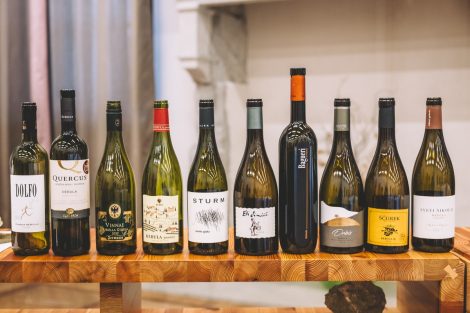
The wines of the Masterclass
Ribolla is today the most representative vine variety of Brda and covers about 25% of the vine-growing area, which exceeds 1,800 hectares, making it one of the most interesting oenological areas in Slovenia, where innovation and tradition interpenetrate positively. At the masterclass organised by Brda Home of Rebula, wines of 12 producers (9 Slovenian and 3 Italian) were presented, highlighting the variety's ability to give life to fresh, structured and macerated wines.
Romanian Rebula 2022, Dolfo
The motto of Marko Skočaj's winery is “dry, extremely dry”. The wines have very low sugar residues and express the minerality of the terroir well. A linear style that is also appreciated in this Ribolla, a fresh wine suitable for immediate consumption. Vinification involves 3 hours of skin contact, fermentation in stainless steel tanks at 20° and maturation in steel tanks for 10 months, plus a further 8 months in the bottle. Fruity aromas on the nose, ripe apple flavours on the palate with a pleasant salty note at the end.
Rebula Quercus 2022, Klet Brda
Klet Brda is the largest social wine cellar in Slovenia with 400 contributing members. Founded in 1957, it now has a total production of around 6 million bottles and exports to 26 countries around the world. Darinko and Luka Ribolica, the winery's oenologists, explain that the 2022 vintage was different from the others, very hot and with little rain. The Ribolla was also affected by this trend, showing minerality and a strong body. Fermentation takes place in steel at 15°-16°, maturation takes place at least 3 months sur lie, then 3 months in the bottle. Peach, green apple, wild flowers on the nose, peach and almond notes on the palate. In the various vintages Quercus expresses itself with a good balance of freshness and aromatic profile, confirmed in this 2022.
Vinnae Ribolla Gialla 2022, Jermann
For Silvio Jermann, the bond with Slovenia is very strong because this is where the family roots are. The founder Anton Jermann left the village of Biljana, now in the centre of Brda, in 1881 and moved a little further west, to what is now Friuli Venezia Giulia. Vinnae is matured mainly in steel tanks with a small part in large Slavonian barrels. First produced in 1983, it is a benchmark wine with an ageing potential of 4-6 years. It has a beautiful straw yellow colour with notes of apple and peach on the nose. In the mouth, fruity and nutty notes with a hint of citrus prevail. A splendid way to close the fresh Ribolle batch.
Rebula Journey 2022, Medot
The Simčič family's commitment to winemaking dates back to 1812. Today, the winery, best known for its sparkling wines, is led by Simon, grandson of the Miro Simčič who set Ribolla on a modern and successful path. The wine presented for tasting combines freshness with the greater complexity resulting from about two days' contact with the skins. Ageing on the lees takes place in steel tanks and barrels until the spring following the harvest, with bottling in May. A beautiful golden colour with herbaceous and quince notes; on the palate, fruit, melon and a lovely lingering, very mineral finish. A wine suitable for ageing up to 10 years.
Ribolla Gialla 2022 BIO, Sturm
The winery in Cormòns led by brothers Denis and Patrick Sturm focuses on preserving the varietal characteristics of each vine and the specificities of the terroir to the best of its ability, making use of spontaneous fermentation and favouring biodiversity in the vineyard with the presence of beehives among the vines. After 7 months in tonneaux (500 litres), the wine matures a further 4 months in the bottle. The hints of pear, melon and honeysuckle on the nose are confirmed in the mouth and make it a fresh and inviting wine, where savouriness and acidity achieve a good balance. Possibility of ageing up to 6-8 years.
Sveti Nikolaj Rebula 2021, Gradis'ciutta
Robert Prinčič, owner of this estate in San Floriano del Collio, has vineyards both in Collio (40 ha) and Brda (3 ha). The transnational vocation is underlined by the production, together with Matjaž Četrtič, of the 'borderless' sparkling wine Sinefinis, which was presented at the Brda Home of Rebula in a version aged 7 years on the lees. The name of the winery refers to an area of the Collio to which the family's history is linked, but the grapes used to produce the wine offered for tasting are grown in Slovenia and vinified in Italy. A tangible sign of the cross-border character of this wine. On the nose, vineyard peach, mirabella, lemon zest. In the mouth, it is satisfying with a long finish. Ageing can be up to 5 years.
Rebula Up 2020, Ščurek
This is the fifth generation of winegrowers in the Ščurek family, more than 120 years of history since Jožef and his son Franc cultivated one hectare of vineyards. Now with Tomaž at the helm, the hectares have grown to 20, divided between Slovenia and Italy. Rebula Up comes from a selection of the best grapes from a 4-hectare vineyard (Grotišče). Fermentation for 5 days in oak barrels (500 l) with the must in contact with part of the skins. After maceration, gentle pressing and racking into Slavonian and French oak barrels for 24 months (new and used). Maturation in bottles for at least 6 months. A complex wine with a beautiful golden colour and aromas of dark peach and apricot. In the mouth it is generous, with notes of dried peach, apricot and citrus fruits. Savoury and mineral finish. Aged up to 5 years.
Rebula 2021, Edi Simčič
An estate founded in 1989 that now owns 12 hectares of vineyards in the villages of Vipolže, Kozana and Fojana. The winemaking style involves placing all wines, both white and red, in French oak barrels and tonneaux. The low yields in the vineyard and the extreme selection of grapes are the prerequisite for wines with good body, minerality and length. Maturation takes place for 11 months in barriques and 6 months in bottles. Aromas of ripe pear, chamomile, thyme while in the mouth the fruity notes combine with floral and vanilla ones. The persistent and savoury finish confirms the complexity and elegance of a wine with long ageing prospects (10-12 years).
Rebula Bagueri Superior 2020, Klet Brda
A wine that confirms the wide production range of the great cooperative, already present in the tasting with Quercus. In the case of the Bagueri Superior, it is a more complex product, with grapes harvested in the first week of October, 12-hour maceration and fermentation in large barrels. Maturation in large casks and barriques for at least 12 months (in recent vintages, efforts have been made to reduce the impact of wood), 6 months in the bottle. On the nose white peach and quince. In the mouth peach, pineapple, citrus notes and long persistence. A wine that’s still evolving and that can reach up to 10 years.
Rebula Orbis 2019, Erzetič
The Erzetič family has been involved in wine since 1725, which means that in a couple of years they will be celebrating three centuries of commitment to winemaking. The new generations, now headed by Andrej, while remaining tied to the land and traditions have naturally brought innovation and in the new underground cellar there are now also Georgian amphorae (360 to 2,500 litres) to enrich the production type. The new Orbis wine line offers wines from the best organic vineyards in the highest part of Brda. These wines are aged, in rotation, in five different types of barrels, hence the name Orbis. The Rebula also follows this rule: maturation for 12 months in oak, mulberry, cherry, ash and acacia barrels, then 2 years in the bottle. The result is an extraordinary complexity. The colour is a golden yellow, while the bouquet is layered with wild herbs, nuts and fruit to which are added toasted and vanilla notes that also return on the palate. Minerality, excellent body and long finish persistence. A wine that can age for more than 10 years.
Rebula Opoka Medana Jama Cru 2020, Marjan Simčič
The tasting could not be without wines with long maceration on the skins that characterise this geographical area. Marjan Simčič belongs to a family that has been making wine since 1860. We are now in the fifth generation, and Marjan has contributed to the development of Brda wines since 1988. His analytical study of the terroir (the company owns 24 hectares, 14 in Slovenia and 10 in Italy) has enabled him to identify the best crus from which a line of premium wines is produced. The Medana Jama Cru is produced from grapes from a single 68-year-old vineyard. Fermentation is spontaneous and maceration is in contact with the skins for 14 days in cement eggs (without temperature control). Maturation still in cement eggs for 10 months then in tonneaux for 12 months and in bottles 6 months. Tropical fruit, spices, peach and light citrus notes on the nose. Juicy on the palate, with a slightly pronounced acidity compared to other vintages. Savoury and long finish and potential for ageing over 15 years.
Rebula Brutus 2019, Ferdinand
Ribolla is the most important wine at Matjaž Četrtič's winery, which was founded in 1997 and now owns 11 hectares. Ribolla is offered in a fresh version (Classic Rebula), matured in oak barrels (Epoca) or macerated (Brutus). The latter interpretation was presented at the 2023 Brda Home of Rebula. For Brutus, the starting point is selected grapes, harvested by hand, with subsequent careful destemming and the berries remaining in the must, which begins to ferment spontaneously. The berries then remain in contact with the wine for 12 months, transferring a solid tannin base to it. Maturation continues in barrels for another year and bottling takes place without filtering or clarification. After a further 6 months in bottle, Brutus offers hints of apricot and bitter orange on the nose. In the mouth it has a pleasant acidity combined with spicy notes and minerality. A satisfying wine with prospects of up to 10 years.

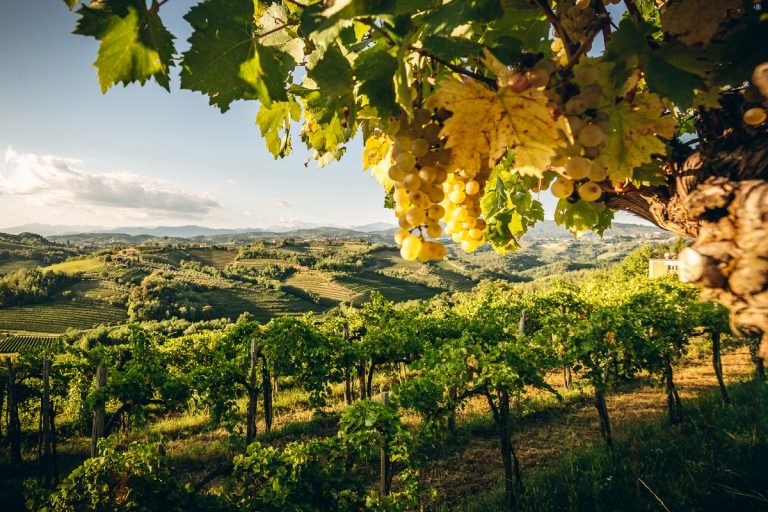
 Four unusual sparkling wines for Summer chosen by Gambero Rosso
Four unusual sparkling wines for Summer chosen by Gambero Rosso One of Rome's Largest cocktail bars opens a Summer venue with a garden
One of Rome's Largest cocktail bars opens a Summer venue with a garden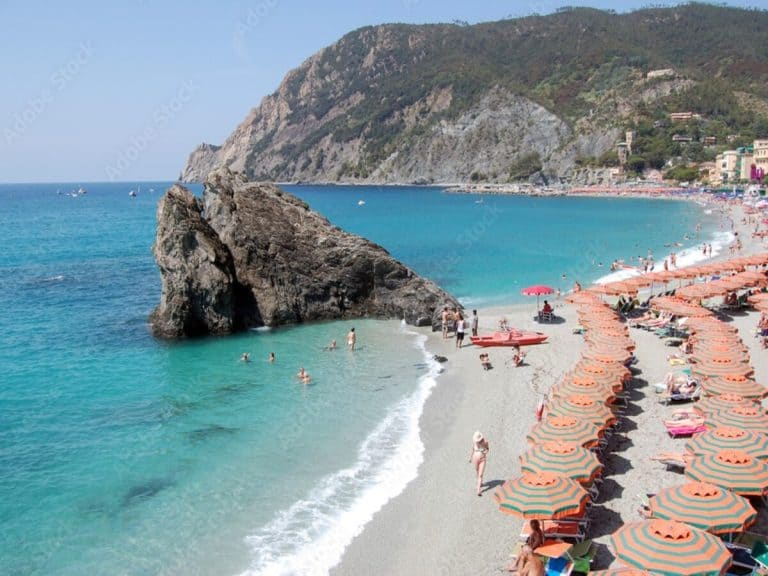 Where to eat in Monterosso al Mare: the 5 best spots chosen by Gambero Rosso
Where to eat in Monterosso al Mare: the 5 best spots chosen by Gambero Rosso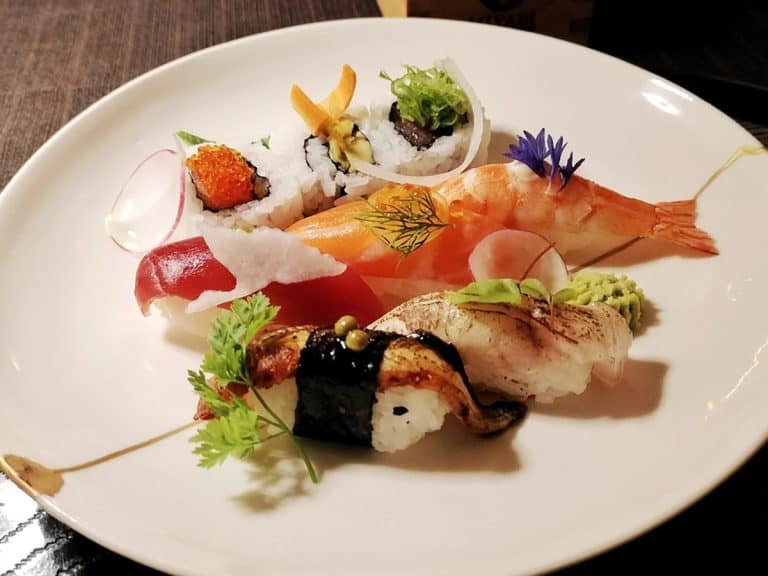 The story of the restaurant that introduced Japanese Cuisine to Turin, one of Italy's best
The story of the restaurant that introduced Japanese Cuisine to Turin, one of Italy's best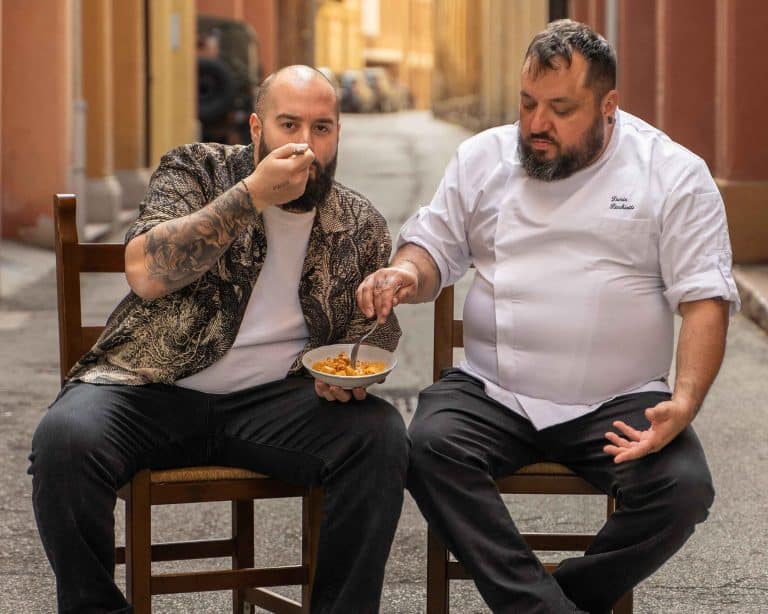 Near Bologna, the new inn of the "brothers" who resurrected pasta alla Vodka has opened
Near Bologna, the new inn of the "brothers" who resurrected pasta alla Vodka has opened